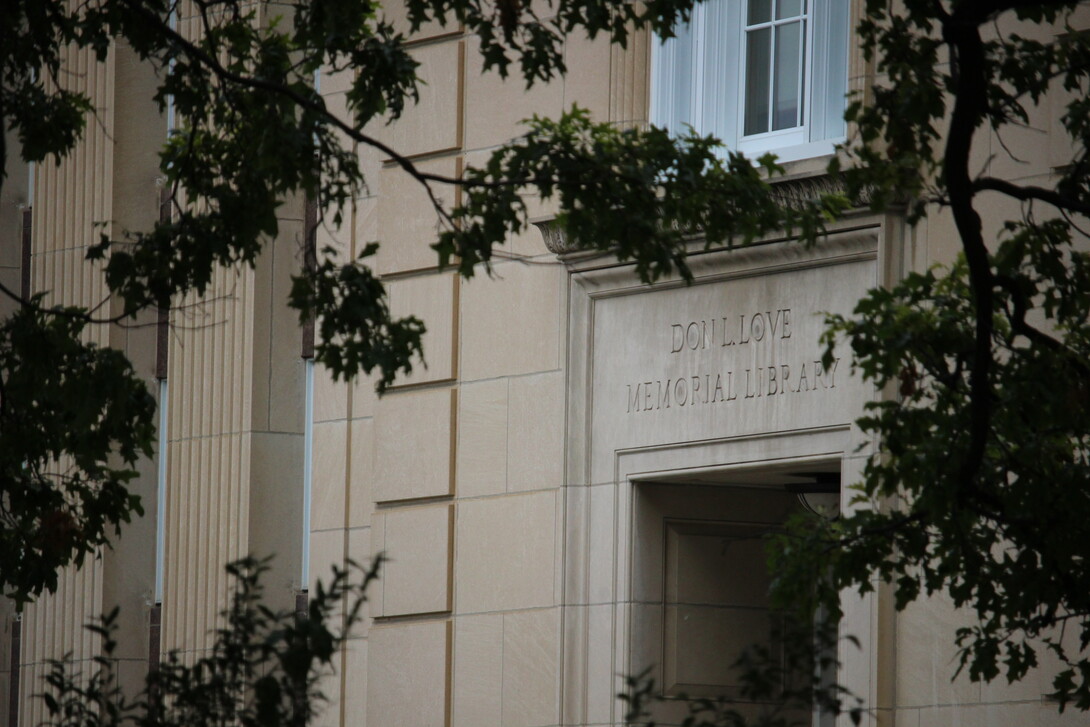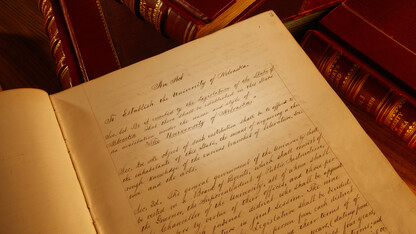
For the past 15 months, yellow caution tape has been wrapped around the book collections in all University Libraries. The tape — which is being removed July 12 — has served both as a safety measure and a condition of an emergency agreement which allowed expanded digital access to 50% (more than one million volumes) of the university’s book collection.
University Libraries staff will remove the caution tape and reopen the book stacks to students, faculty, staff and the public for browsing and retrieval of the books. Deactivation of the emergency temporary access service agreement with HathiTrust will coincide with the reopening of the collection.
Libraries staff are excited to have the collections open for browsing again and are grateful for the vital role the emergency agreement played in supporting Nebraska’s faculty and students.
“While electronic materials are not always preferred, depending on the discipline, during the pandemic we needed materials to meet the accessibility and safety tests to continue to support research, teaching, and learning,” said Casey Hoeve, associate professor and head of content and collections.
When the university went to remote operations in March 2020, emergency access played a key role by allowing expanded access to copyrighted materials within the libraries collections courtesy of HathiTrust agreement. After activation, digital access to campus library collections increased from 26% to 50%. In April of 2020, through leadership by Claire Stewart, dean of the libraries, the university was among the first academic libraries to apply and receive the emergency agreement. From that point, a team within the libraries got digital access up and running smoothly.
“Our goal was to make the collection discoverable within the catalog by adding a link to every individual record, which required the staff in the discovery and resource management department, web developers, and libraries IT programmers to combine their expertise,” Hoeve said.
More than 4,800 materials were checked out and more than 2,400 of those items were renewed (sometimes multiple times). Hoeve says that use spiked during the academic school months from August to December 2020 and again from February to April 2021.
The emergency access agreement ensured a safer research environment for students, faculty, and libraries staff, who did not have to handle materials and provided instantaneous access that was highly convenient.
Joyce Melvin, the interlibrary loan manager, said the agreement for resource sharing and interlibrary loan were a mixed blessing.
“ETAS provided a huge portion of our collection for digital content, but not everyone likes reading books digitally,” said Melvin said. “Students also had to make a big adjustment from getting their books ‘just in time’ to planning ahead.”
Users will continue to have access to HathiTrust items in the public domain or through creative commons licensing, and copyrighted items will still be available for full-text search in the HathiTrust Digital Library.







